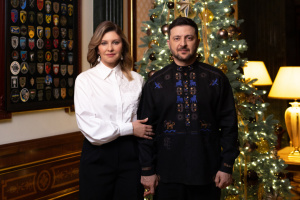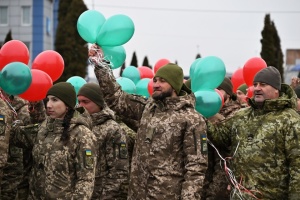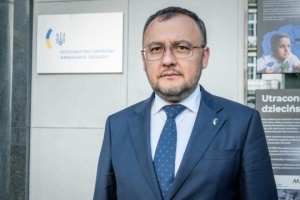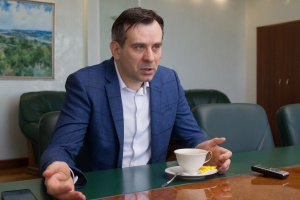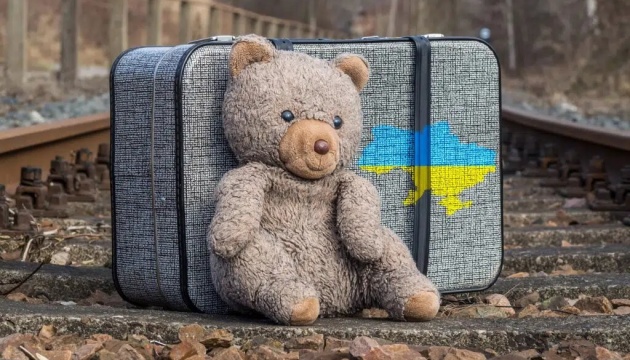
How Russia abducts Ukrainian children – Reuters special report
This is reported by Ukrinform, referring to Reuters.
In particular, Reuters reporters spent six months investigating the fates of missing Ukrainian children who had no relatives to advocate for them because they were orphans or were otherwise separated from their families.
Among them were Liza Batsura and Zorik Ibrian, both 16 and from Kherson, one of the first cities to fall when Russia invaded a year earlier.
The teenagers spent several months in seaside camps in the temporarily occupied Crimea, where campworkers forbade them from wearing the blue and yellow colors of Ukraine and made them learn the Russian anthem by heart. More recently pro-Russian officials had moved them to Henichesk, a Russian-held port city on the Sea of Azov.
Liza safely returned to Ukraine thanks to her mother, Oksana Halkina, who traced her to Henichesk and brought her home in May 2023. Most accounts that have emerged of Russia’s mass movement of Ukrainian children have come from returnees like Liza.
Other children from Kherson who were living at the college in Henichesk, however, remain in Russian hands. They include Liza’s schoolmate Zorik, and Zorik’s brother Danylo, who were orphaned in 2021.
Reuters also traced the journeys of 48 much younger orphans from Kherson, aged five years or less at the time of their removal.
“This group is at the heart of separate abduction charges brought by Ukrainian prosecutors against three unnamed individuals – a Russian and two Ukrainians,” the report states.
Reuters tracked 46 of the cohort to two orphanages and a sanatorium in Russian-held Crimea and confirmed the group’s presence there with people involved in their care.
Two other children are now in Russia. One is Illia Vashchenko, who turns four this month. Illia was issued with a new Russian birth certificate on September 26 last year by a Russian state registry office in Podolsk, near Moscow. The registry documents, which Reuters reviewed, do not reveal his precise location or whether he has been adopted.
Another is two-year-old Marharyta Prokopenko. Marharyta was adopted by Sergei Mironov, leader of a pro-Kremlin political party, and his wife Inna Varlamova, who has worked as a parliamentary aide, according to adoption papers reviewed by Reuters. Marharyta’s name has been changed to Marina Mironova, the papers show.
According to Reuters, the removals of Ukraine’s children are supported by a vast machinery to deport, house and re-educate. The agency found that a network of pro-Kremlin actors and helpers was involved in taking the two groups of orphans from Kherson: Lvova-Belova, members of the Russian parliament, officials in Russian-occupied Crimea and Ukrainian doctors and teachers who chose to collaborate with Russian authorities.
In some cases, the children are being exploited in TV shows and in online videos for their propaganda value.
“The deportations have come at an enormous human cost: siblings have been divided, vulnerable youths have been turned against each other, and preschool children – with no blood relatives to claim them – have been hidden from view in Russian-held territory,” Reuters noted.
Almost all have been “brainwashed,” said Mykola Kuleba, head of Save Ukraine, a nonprofit organisation that helps to retrieve Ukrainian children from Russian-controlled territory. “And we will never be able to take them back. Because they hate, hate Ukraine now,” he noted.
A Crimean official said information about the Ukrainian orphans is strictly confidential, by order of Aksyonov, Crimea’s Moscow-backed head. Any inquiries about the children by Western media had to be immediately reported to the Crimean government, the official said, according to Reuters. He added that the issue had been put under the control of Lvova-Belova’s office.
A reminder that, according to Verkhovna Rada Commissioner for Human Rights Dmytro Lubinets, more than 19,000 Ukrainian children have been confirmed as deported.
Photo: Denys Hlushko

